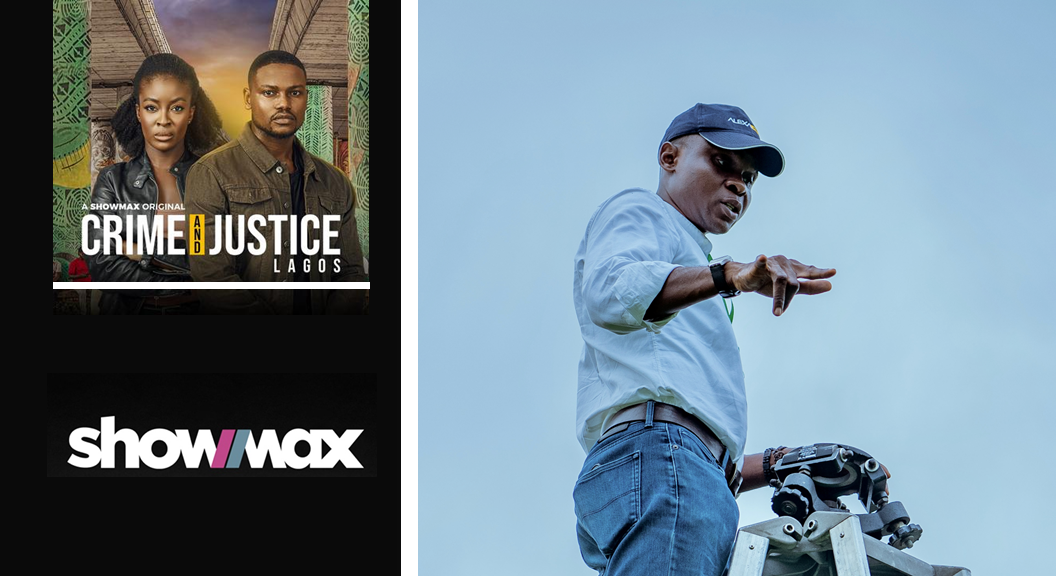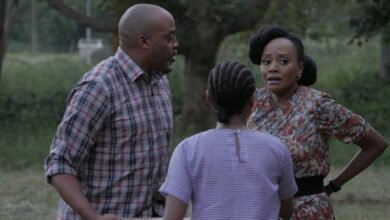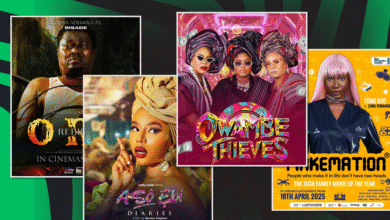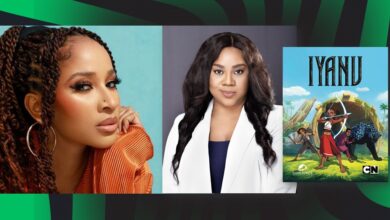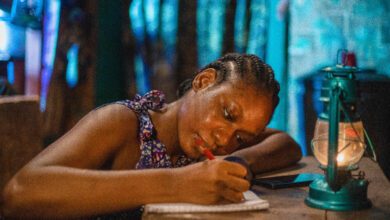The Story ⚡
Crime and Justice, Lagos is a cop procedural TV show released in December 2022.
According to critics and general reviews, the six-part series stood out as a Showmax commissioned project that truly reflected Lagos society. It perfectly framed the comparison of traditional values and modernity with arguments for both sides and most importantly gave a vision that indeed justice can be served.
In this exclusive conversation, Nigerian Filmmaker Yinka Edward who served as the showrunner for Crime and Justice Lagos reveals how the show got picked up by Showmax, finding his writing and directing team, and a zoom out to focus on industry matters.
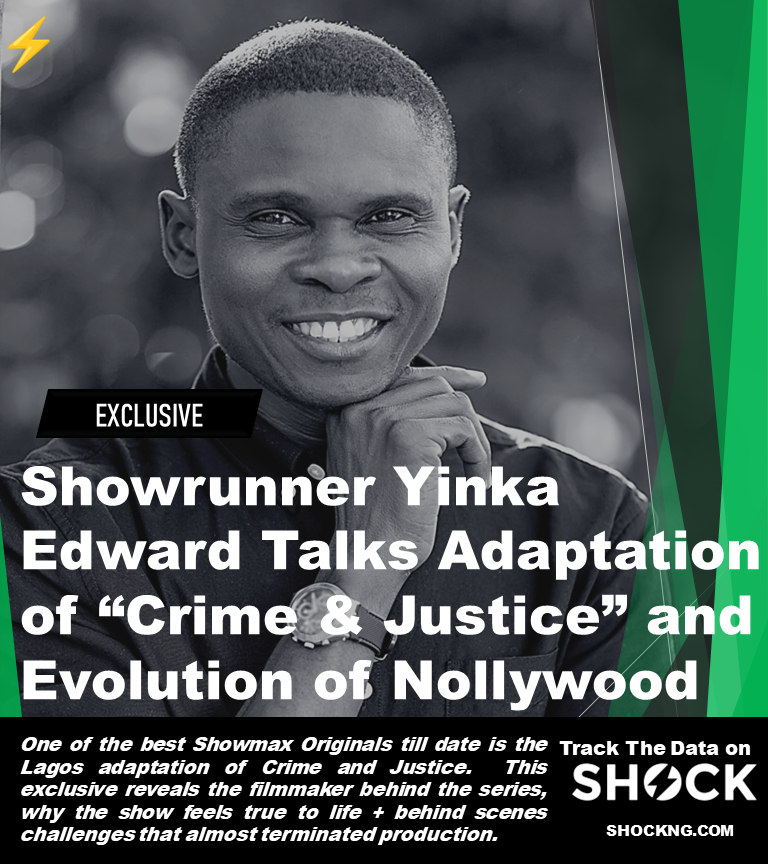
When did you know that you will shoot Crime and Justice Lagos, and how were you involved in this production?
We got the idea that we will be doing the project sometime in 2021. There’s a Kenyan version, so we spoke with the creator, Adam. We told him about a possible adaptation for the Nigerian audience.
This is after we’d had preliminary meetings with Showmax. That was it really.
Did Showmax pitch you?
No. We reached out to them.
We saw the Kenyan version first, approached Showmax and they said yes. It was even advised that we have a conversation with the creator just to have a better understanding of the show.
What excited you about making this show?
Lagos being one of the biggest cities on the continent of Africa naturally has a lot of stories to tell. Lagos is a fast-paced metropolis with a vast population and as a result, crime is inevitable. So we knew that we would have a lot of interesting materials if it was set in Lagos, Nigeria. The social commentary is also close to my heart. I like stories that raise social conversations; stories that probe the human condition.
I’d seen How They See Us and it really, really moved me. I remember watching the show and thinking, “This is Nigeria”. The social impact that the show had appealed to me.
I’m one of those that believe that filmmaking can be entertaining but it’s also an avenue to educate. I believe we can use filmmaking to shape society and develop Nigeria.
When the idea for the Lagos version of C&J dropped, it was like an opportunity to create something that’s close to my heart and create positivity and hope for Nigeria.
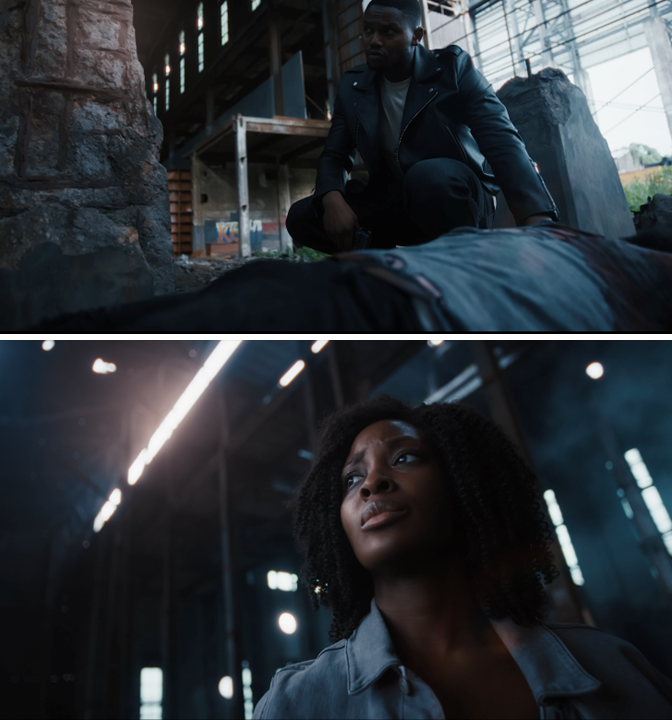
After being greenlighted by Showmax, walk me through you picking your A-Team.
Things had already been happening in the process. Years before, I had met Kola Munis, a fantastic friend who is the head writer for the show. We had both been discussing different films and how to contribute to the Nigerian film industry by telling our own stories. When this came up, it was just at the right time. So, Kola automatically slid into that role.
Basically, it was him, Onyinye Omenani, Charlie Oleghe, who’s the head of post-production, and myself that were the initial core team for the project. And then Eustace Okwechime who I had worked with at the BBCWST was the producer.
As for writers, we built a team through our network. They are Segun Michaels, Ifeanyi Barbara Chidi, and Oluwapemi Elujoba Bifarin. I also reached out to a very close friend of mine based in South Africa, Adze Ugah, who came in as a script editor. The directors are Mak Kusare and Onyinye Egenti. I have had the opportunity of working with both of them previously and I know how talented they are. So it was a delight to get to work with them again on this.
All of us of course Nigerians.
How were you able to convince guys that were not based in Nigeria to come over for this project?
Passion and ambition, nothing more. We sold the vision to them and they came on board. I think we all share the same passion as filmmakers. We are hungry to tell good stories. We knew what we wanted to do and the story we wanted to tell. It’s not on every project you get to be expressive. As filmmakers, we like our philosophies, our approaches to storytelling, and the process.
We just like being thorough, and I think it’s a case of like minds all coming together to tell stories in a way they like to tell those stories.
Tell me the visual approach you used for shooting this series.
We looked at a few shows, but with Crime and Justice Lagos, each episode was its own standalone story. So we had to create a mood that supports each story.
For example, in episode three, Oro, the story was about a conflict between two philosophical worldviews and that informed how it was approached.
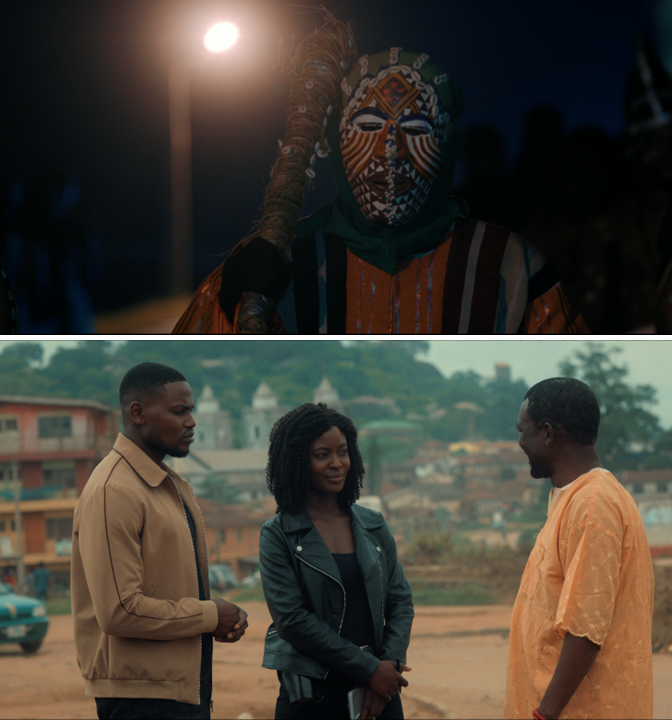
For the episode titled Clash, which was more or less an End Sars commentary, give me a plot breakdown.
Episode Four is a story that deals with police brutality. A group of four young friends were unjustly killed by the police and the crime was investigated internally and the perpetrators brought to justice.
For me, I felt that we needed to create hope. So, inasmuch as there are corrupt police officers, there are still very good ones who work hard and do their best to bring justice. We needed to promote and encourage that in the show.
The police department in the show was fictional but that’s the hope we have for Nigeria. We wanted to encourage good police officers and challenge the bad ones to do what is right by watching the outcome of being on the opposite side of the law.
Reading some of the comments on social media, and seeing how the audience reacted to it, was really encouraging. There was a police officer who saw it and was like, that’s the best thing he had ever seen. For us, it’s beyond entertainment and I think it is important to challenge the status quo.
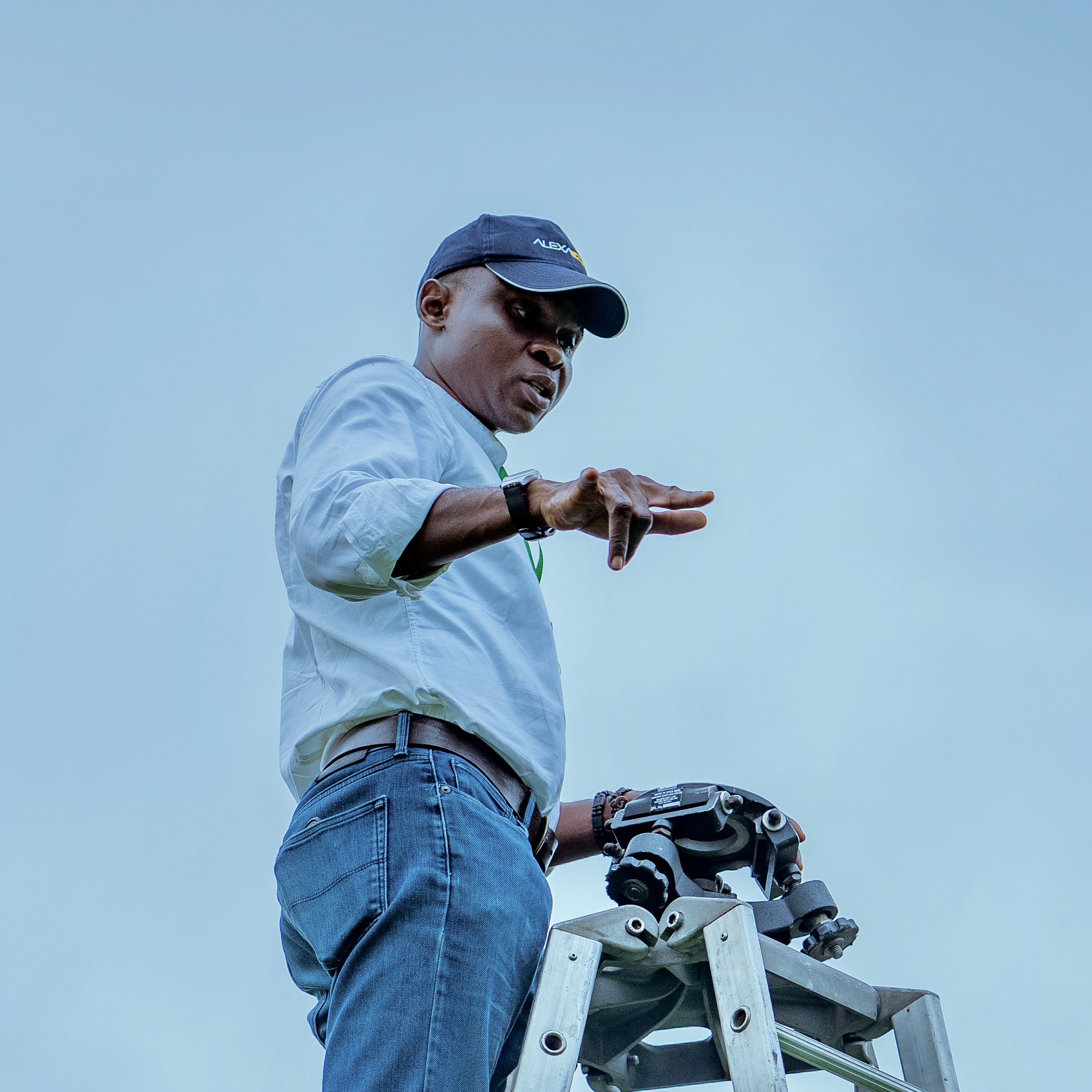
This is your first time being a showrunner?
Yes.
What was your biggest worry?
My biggest worry was about the little time we had to turn around the show, given the fact that we needed to create a show that was good both technically and otherwise.
What were the limitations you foresaw and were you able to overcome them at the end of the day?
As I said, time for us was a big challenge.
But the budget also presented its own major challenges. We had set out to make eight episodes, but between 2021 when we initially pitched the project and 2022 when the production happened, there was a massive shift in the Nigerian economy and the price of goods and services skyrocketed.
Very quickly, we realized that without compromising on quality, we might not be able to pull off eight episodes based on the landscape that had suddenly changed right before our eyes. We raised our concerns with Showmax and they were highly gracious to us. As a solution, they agreed for us to do just six episodes instead, and that helped a lot.
Aside from the economic limitation, was there any particular time that something huge made production shut down?
We had a fatal car accident in September on the Lekki expressway.
We had just finished for the day. It was late at night and I was driving behind the crew bus in my car with the producer. Suddenly a reckless driver coming at top speed from the opposite direction lost control and literally flew off his lane right into the crew bus, knocking it over.
The accident was fatal. One cast member sadly died and several others were seriously injured. We had to rush them to the hospital. Some required major surgery. That was a really challenging period. Production had to shut down for a short while for obvious reasons.
Just a week before that, we had lost one of the crew members to illness. We were still recovering from that when the accident happened.
Again, I can’t overemphasize the tenacity of the cast and crew who in spite of all the things that happened still found the strength and conviction to finish the shoot.

Talking about your work as a cinematographer, what do you think you’ve figured out that has helped your composition?
I think the more you do something the more you learn about it. For me, it’s the story that motivates me. I’m always thinking of the story and every scene in a frame has to tell a story. That’s what inspires how I work.
I try not to be caught in the web of style over context. I can stylize stuff, but the story has to inform it. As much as possible, I like being authentic with stories. I don’t like things being random without meaning. As you grow in storytelling, you learn these things and you apply them.
Concerning streaming wars, what are your thoughts on foreign investors coming to invest here?
I think it’s fantastic. Whichever way you look at it.
There’s no way we can build the Nigerian movie industry the way we want it without collaborations. In fact, part of why I’m here is to build the bridge and that bridge is already being built by a lot of filmmakers to the point where Nigeria is now becoming a place of attraction – where we can import and export. That has been my drive and push from the beginning.
That is what I tell all the filmmakers I’ve worked with, the quality of our work must be at par with international standards.
It’s a great time, but also in that process, we must be very sure that we understand the territory, and I’m hoping that creatives will be able to liberate themselves from an invisible glass ceiling that I sense is still there. We have to collaborate to get the liberation. The more we improve the quality of our work, I am optimistic that we will break that ceiling.
No doubt, Nigeria is a frontier for storytelling in Africa. Also, we need to be careful that we build a sustainable structure as time goes on.
I’m hoping that there is a fair amount of honest conversation that will continue to go on about how films are made in Nigeria, especially the position of the crew in the film industry. I’d like them to be treated better. The more we can have these conversations, I think the better it will be.
I also think that with streaming platforms, the industry may be cutting off some of its core audience who once had access to these films through VCDs/DVDs but who don’t have access to the streaming platforms.
But whichever way you look at it, it’s a welcome development. The next thing is that we must build on that so that it can keep growing.
What’s the biggest problem in the Nigerian film industry? Budget or capacity to execute?
I won’t use the word ‘problem’. They are more like challenges. In my opinion, there’s no part of the Nigerian film industry that we can say is fully mature yet.
I believe you even need the capacity to handle the budget. There’s a lot that can be improved, and some of those improvements include laws and legislation. So the government will have a part to play in this as well.
Was there any particular scene that stands out for you; something that you’re very impressed with each time you watch?
That’s a tough question for me to choose just a few scenes because we shot lots of good stuff.
There are scenes that the architecture and scenery help bring alive, like in episode three, Oro. The story and the locations we found gave me a lot to work with cinematography-wise.
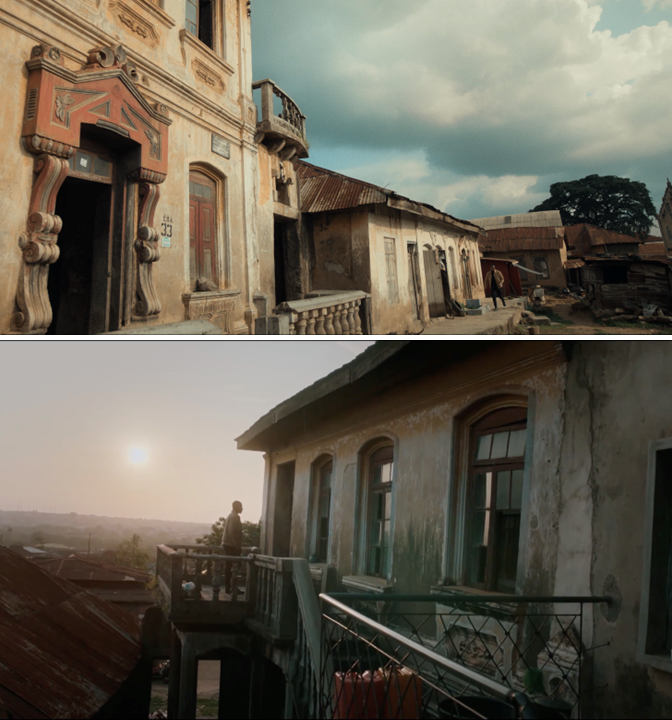
Have you been greenlighted for a second season?
No, we have not.
Thank you for speaking with us.
Thanks, Shock
